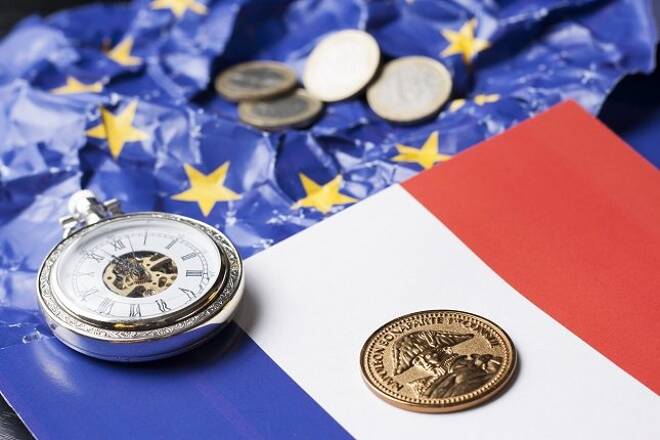Advertisement
Advertisement
Stocks Consolidate as Anxiety Builds Ahead of Second Round of French Elections
By:
European stock markets are heading broadly south, halting six days of gains as investors await the ECB meeting, amid strong inflation and growth data. The
European stock markets are heading broadly south, halting six days of gains as investors await the ECB meeting, amid strong inflation and growth data. The Macron rally saw the DAX surging to new all-time highs and helped the CAC 40 to break its long term downtrend, but investors need new impetus to push gains out even further. Lower metal prices weighed on miners and even a strong profit report from BASF SE failed to lift the stock, amid cautious words from Chief Executive Officer Bock. Deutsche Bank meanwhile came under pressure as the return to growth lagged promises of CEO Cryan. The FTSE 100 is down as Sterling strengthens, while Macron’s lackluster start to the second round of the French presidential election is adding to pressure on Eurozone markets, even as he remains a strong favorite to beat Le Pen. The DAX is down, but remains at very high levels above 12400, IBEX and MIB are underperforming and the Euro Stoxx 50 is also lower. Markets moved mainly sideways in Asia, with the Nikkei underperforming and closing with a -0.19% loss as the BoJ left policy unchanged, elsewhere markets managed slight gains as investors mulled the implications of Trump’s tax plans, while the CSI 300 managed to claw back losses despite signs that officials extend the crackdown on leverage.
WTI crude prices are down 1% at $49.16, earlier logging a two-session low at $48.95. Signaled intentions for OPEC-led output trimming to be extended into the second half of the year haven’t had much grip in the face of bountiful supply and sharply rising U.S. shale production. This comes on the heels of Wednesday’s larger than expected draw in crude oil which was offset by a larger than expected build in products such as distillates and gasoline.
German State Inflation Increased in April
German state CPI moved higher in April on Easter effect. With the bulk of German state numbers already released the headline rate will pick up again in April, after dropping back in March, with the later timing of Easter this year the main reason behind the volatility over the March/April period. Holiday related prices picked up in April this year, rather than in March as in 2016 and that had not only an impact on headline rates, but also core inflation. Data for NRW, the most populous state, showed the annual rate for leisure costs spiking to 3.3% year over year in April, after falling to -0.8% year over year in March. The uptick though is less pronounced than in Spain and we continue to see German April HICP at 1.8% year over year up from 1.5% year over year in the previous month and still below the ECB’s 2% limit for price stability.
Eurozone economic confidence jumped to 109.6, from 108.0 in the previous month. A much stronger number than anticipated, with industrial confidence rising to 2.6 from 1.3, consumer confidence confirmed at -3.6 and services confidence rising to 14.2 from 12.8. Very strong numbers, which tie in with the PMIs for April and confirm that the Eurozone recovery is on track.
About the Author
David Beckerauthor
David Becker focuses his attention on various consulting and portfolio management activities at Fortuity LLC, where he currently provides oversight for a multimillion-dollar portfolio consisting of commodities, debt, equities, real estate, and more.
Advertisement
